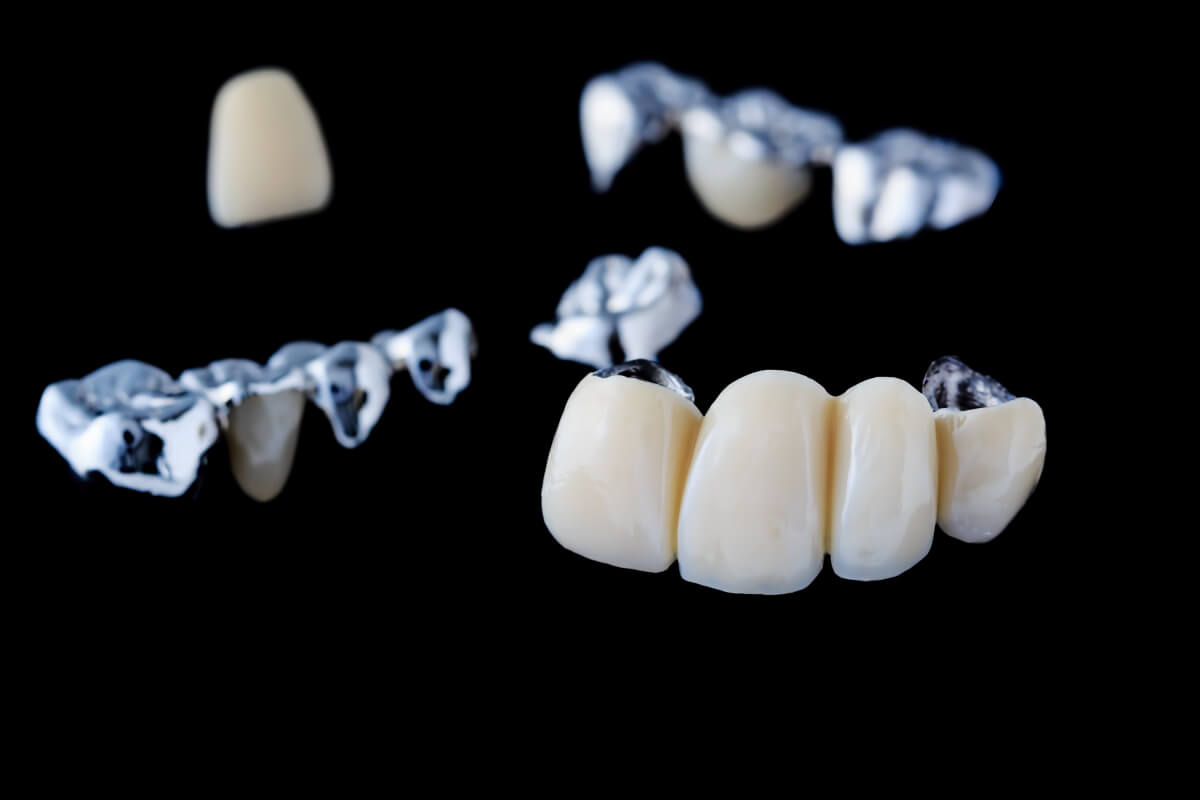Have you ever been insecure about smiling fully due to missing teeth?
While it is a common worry, the consequences of tooth loss go beyond aesthetics. The condition of our teeth has an immediate effect on our overall health and self-esteem. If you’ve ever considered how to deal with this problem, you’re not alone.
Fortunately, dental bridges in Carstairs, where we provide a solution, can help you reclaim your oral health and confidence.
Several other causes of tooth loss include decay, gum disease, and accidents. The good news is that modern dentistry has improved significantly, enabling efficient methods to regain your smile and confidence.
Dental Bridges
Dental bridges are used to bridge the gaps between teeth. They can enhance your look, improve oral hygiene, and regain your chewing abilities. A dental bridge consists of crowns covering the natural teeth on either side of the gap and two artificial teeth that “bridge the gap” in the mouth. Customized tools known as dental bridges close one or more spaces caused by lost teeth.
Traditional Dental Bridges
Missing a tooth can be a real confidence dampener, affecting your smile’s look and your ability to enjoy food comfortably. Traditional dental bridges from Carstairs dentists are here to easily bridge that gap. Dentists use conventional dental bridges when you have teeth that are in good condition on both sides of the gap.
Noted below are several reasons why this particular solution can help you achieve the smile you desire:
- Natural look: Traditional bridges blend seamlessly with your other teeth, giving you a confident and genuine smile.
- Improved function: With a bridge in place, you can eat and speak without worries, regaining your dental functionality.
- Permanent solution: These bridges stay put; there’s no need for daily removal. They provide stability for your everyday activities.
- Prevent shifting: Traditional bridges keep neighboring teeth in their proper place, preventing alignment issues.
- Custom comfort: Your dentist tailors the bridge for a perfect fit, ensuring your comfort.
- Preserve teeth: Unlike some alternatives, traditional bridges don’t require altering adjacent teeth, preserving their natural state.
When you’re missing a tooth, traditional dental bridges in Didsbury offer a practical and accessible way to fill that gap. Conventional dental bridges integrate into your daily life, enhancing your smile and restoring function to missing teeth.
Cantilever Bridges
Cantilever bridges, a variant of conventional dental bridges, provide a particular option for unusual cases of tooth loss. Cantilever bridges rely on a single adjacent tooth for support, compared to typical bridges, which anchor artificial teeth between two near-natural teeth.
Some of the main advantages to this form of bridge are as follows:
- Targeted solution: Cantilever bridges are best suited when you have only one adjacent tooth next to the gap, while traditional bridges require support from both sides.
- Tooth preservation: With cantilever bridges, only one natural tooth is involved, preserving the integrity of your other teeth. Traditional bridges typically affect two adjacent teeth.
- Aesthetics: Cantilever bridges blend seamlessly with your natural teeth, providing a harmonious appearance like traditional bridges.
- Functionality: Both types of bridges effectively restore your ability to eat and speak comfortably.
- Maintenance: Caring for a cantilever bridge is straightforward, requiring the same regular oral hygiene practices as traditional bridges.
Consult your dentist in Didsbury to determine the most suitable bridge type for your dental needs. They can evaluate your situation and recommend the best approach to restoring your dental function and your smile’s confidence.
Maryland Bridges
Metal wings rather than crowns are used to secure a Maryland bridge, also known as a resin-bonded bridge. To ensure your bridge’s success, a local dentist near you will expertly connect the wings to the backs of your adjacent teeth. Dentists frequently use Maryland bridges to replace front teeth. These bridges may not handle the pressure from the back teeth during chewing.
Some of the key benefits include:
- No additional dental work: It doesn’t require crowning adjacent teeth.
- Durable: The structure itself incorporates a metal framework, ensuring durability and reliability.
- No extra harm: Maryland dental bridges minimize the impact on your adjacent teeth.
- Reliable: A conservative and effective tooth replacement option.
Implant-Supported Bridges
Implant-supported bridges offer lasting stability, preserve adjacent teeth, and provide the strength to enjoy your favorite foods, all while feeling natural in your mouth.
These implants closely resemble tooth roots and require full integration with your jawbone before bridge attachment. This essential process usually spans three to six months. This contemporary approach becomes especially valuable when replacing three or more consecutive missing teeth, and you can easily find qualified professionals to perform dental bridges near you.
- Stability: Anchored to dental implants, ensuring a secure fit
- Preserve teeth: Adjacent teeth remain untouched, unlike traditional bridges.
- Durability: a long-lasting solution
- Chewing power: Withstand chewing pressure.
- Natural feel: Mimic natural teeth in look and function.
We’re Here For You
At Mountain View Smiles, your smile matters. We offer dental bridges for a confident, complete smile. Contact us for personalized care and solutions.

